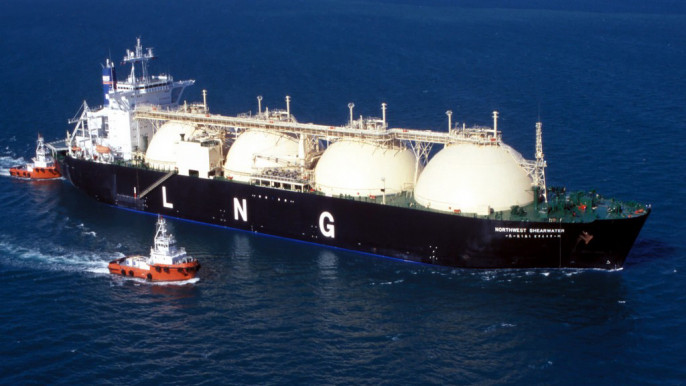The Houthis in Yemen announced at the start of Israel’s brutal war on Gaza that they will be targeting vessels bound for Israel in the southern Red Sea.
Four tankers transporting Qatari liquefied natural gas (LNG) have recommenced their journey after a temporary halt due to maritime attacks by Yemen’s Houthis in the Red Sea, reported Reuters.
The resumption of their course was indicated by LSEG ship tracking data on Tuesday.
The Houthis in Yemen announced at the start of Israel’s brutal war on Gaza that they will be targeting vessels bound for Israel in the southern Red Sea.
The LNG tanker Al Rekayyat has now resumed navigation through the Red Sea, heading towards Qatar.
This vessel had been stationary since January 13 along its designated route in the Red Sea. Additionally, the ships Al Ghariya, Al Huwaila, and Al Nuaman, all laden with Qatari LNG, are again underway.
However, these vessels have altered their course southward, while still indicating the Suez Canal as their intended destination.
These three tankers had been stationary off Oman’s coast since January 14. Furthermore, the estimated arrival time for Al Nuaman has been postponed by over two weeks, now expected on February 4 instead of the initial date of January 19.
It is noteworthy that Qatari LNG cargoes traversing the Suez Canal are usually bound for European markets.
Vessels, including LNG carriers, have been either halting their journey or diverting from the Red Sea route leading to the Suez Canal, traditionally the fastest connection for freight from Asia to Europe. Consequently, many ships now have to navigate the longer route around Africa via the Cape of Good Hope.
Analysts, according to Reuters, estimate that this alternative route could extend the voyage from Qatar by about nine days on top of the usual 18-day journey.
While this rerouting may lead to delivery delays, the current healthy levels of gas storage in Europe offer some respite. European benchmark gas prices at the Dutch TTF hub saw a reduction on Monday, influenced by milder weather forecasts and ample storage, which helped mitigate the concerns arising from shipping disruptions.
The Houthis have repeatedly stated that the attacks will halt once Israel ends its relentless war on Gaza, which has killed more than 24,000 people.







